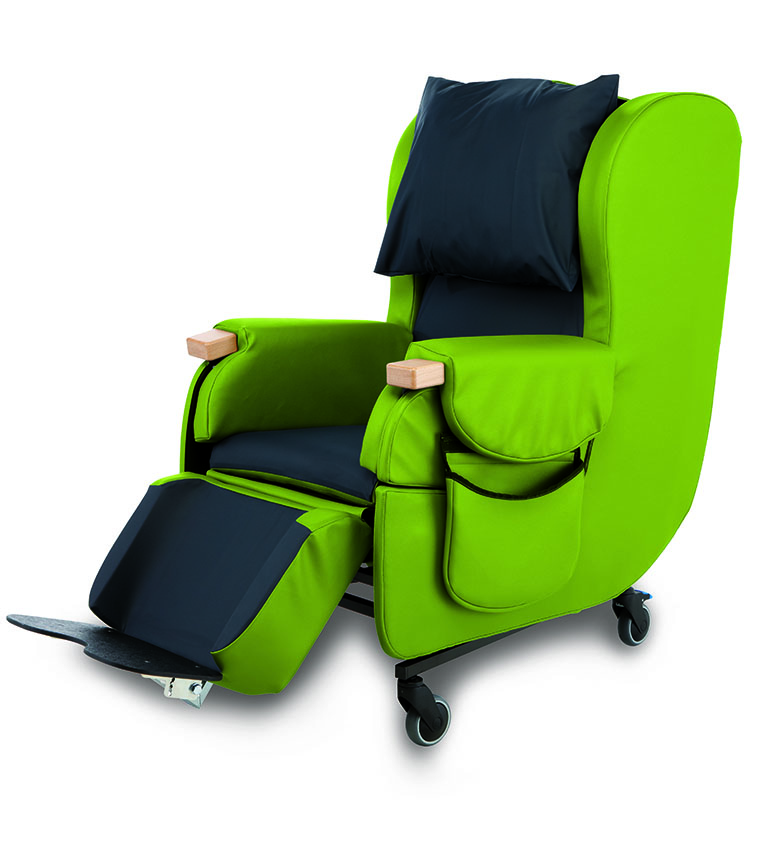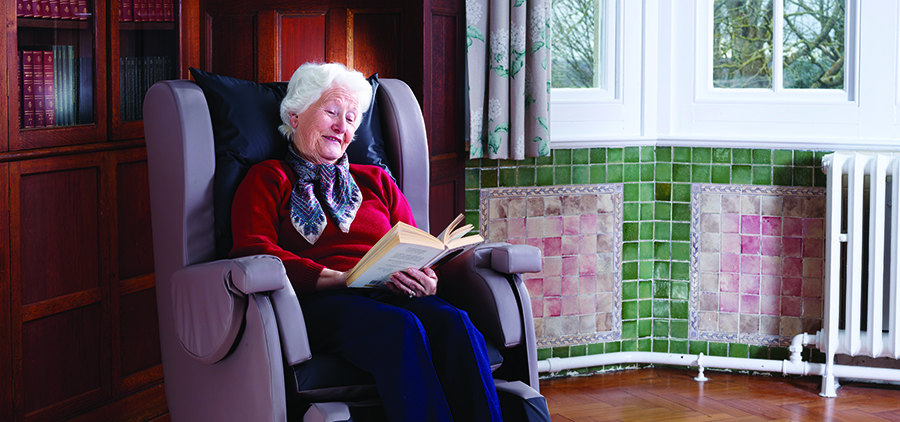The Role of CareFlex Specialist Seating in Stroke Rehabilitation
The effects of a stroke can be devastating and your body needs time to heal and recover. For some people the effects may be minor and short-lived, others may be left with more serious problems related to mobility and independence.
You want to give your body the best chance of recovery.
You might be feeling angry, anxious, frustrated or just plain bewildered by your new situation, but once you start to recover, your stroke team will work with you, your family and carers to assess the effects of your stroke and what that means for your rehabilitation. The assessment will include swallowing, mobility, pressure area risk, continence, communication and cognition, plus nutrition and hydration. All very important in their own right.
Let’s just think about the mobility, or perhaps lack of mobility, issue.
According to the British Heart Foundation, the average person sits for about 9.5 hours a day. If you are in stroke rehabilitation, you will probably need to spend much of, or all the day seated – or in bed – in order to recover. But lying or sitting in one place for too long, if not managed correctly, can lead to other serious problems …on top of recovering from the stroke.
In everyday life, most people make postural change instinctively. We shift our buttocks, stretch our legs out, move our head, neck and shoulders… we’re constantly on the move to keep ourselves feeling good… we manage our own comfort, posture and stability… without a second thought. But when your abilities are reduced or compromised by the effects of a stroke, often you cannot make these voluntary movements by yourself.
This makes you vulnerable to pressure ulcers. Sitting for long periods in an asymmetrical and unsupported position can lead to skin and soft tissue damage often resulting in pressure ulcers. This can range from a slight discolouration of the skin to a serious deep wound that may leave many tissue layers exposed. Pressure ulcers often develop on the buttocks, sacrum, hips, heels, spine, and around the head.
The last thing you want is to get stuck in bed or find yourself back in the hospital because ordinary chairs and wheelchairs do not give you enough support. What can sitting in the right CareFlex chair achieve?
What can sitting in the right CareFlex chair achieve?
It will promote comfort, relaxation and safety. These are probably the most important things. If you are comfortable you can relax and if you are safe you will not get anxious and will conserve energy (for getting better!).
Choose a Tilt-in-Space Chair – keeping gravity at bay!
Gravity can trap you in destructive postures which can affect your ability to breath, communicate, eat and drink. All the rather important things in life! Not forgetting the possible problem of pressure ulcers forming, which can be incredibly debilitating
A tilt-in-space (TiS) chair can help alleviate these problems.* A chair like our best-selling, industry-leading HydroTilt may be suitable or you may need a more complex, adjustable chair like the HydroFlex or the highly adjustable, modular seating system, the SmartSeatPro.
A footrest is essential – no to dangling feet please!
19% of an average person’s body weight is distributed through the feet when seated, so appropriate support is very important to reduce the risk of pressure injury and maintain stability.
It is imperative that a full assessment is made to select a chair that is right for you. A chair set up for someone else might make things worse. Important measurements are seat width, depth and height, arm height, back height, then the correct head and neck support, and whether you need lateral supports, a special headrest… to name the basics. So if you get given a chair, ask your occupational therapist or physiotherapist to get it reassessed… with you in it!
Getting the basics of ‘sitting comfortably’ right will mean the body has the best possible chance to heal and fight the effects of the stroke. CareFlex chairs can help the recovery process and keep you out of the hospital, enjoying the best health and quality of life.
Blog by Susie Hall – CareFlex
For an Assessment, please call Emma Dobson at Kent Mobility
01732 770251

